The Qatar Grand Prix weekend was blighted by what most in the sport – at whatever level – deemed to be unacceptably long delays in reaching and publishing stewards’ verdicts.
In the first instance, whether to grant a review to Mercedes over Max Verstappen’s robust lap 48 defence on Lewis Hamilton in Sao Paulo four days earlier, took all of 22.5 hours. The second, the alleged ignoring of yellow flags by three drivers including Verstappen, just two hours short of that.Both cases set records for time taken, doing the sport no favours in the eyes of most fans, regardless of whether they are in the die-hard petrolhead category or part of the emerging group so often crowed about by F1 as proof that Liberty Media’s revamps of the support are bearing fruit. A number of ‘NextGen’ fans are probably already ‘ex-Gen’ fans.
Worse, pronouncing the former verdict in the middle of Friday’s FIA press conference featuring senior management of the two protagonist teams – with Netflix camera operator rather conveniently in attendance despite not being in the Covid ‘bubble’ – smacked of ‘Judge Judy’ antics that have no place in a round of a prestigious world championship series. Was the verdict honestly not available 15 minutes earlier? Pull the other one…
On the one side, one hears the commercial rights holder pushed for delays in order to maintain fan interest and suspense; on the other, F1 sources are adamant senior officials were furious about both situations. If the latter, a formal statement would set the record straight about the former; until then, perceptions that F1 crudely milked both hearings prevail.
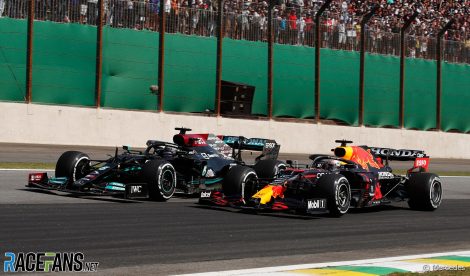
(The FIA has since provided RaceFans with the internal timeline of the stewards’ verdict, which shows that the document was provided to the FIA at 15:18 local and distributed via the FIA document management system two minutes later.)
To explain the role and independence of the stewards a parallel is best drawn with civilian legal systems through a comparison with the differing roles of police and the (independent, but state-appointed) judiciary. The former investigates and flags possible breaches, either through complaints or own initiatives, then packages the evidence for the appointed judges, who consider all angles and deliver their verdicts.
Depending upon the offence a verdict may be appealed, and in many instances the sentencing judges grant the right to appeal, although the matter may be referred to a higher court for both the right to appeal and the appeal itself. If one or other party feels aggrieved by any appeal court verdict the matter could be referred higher still, typically to a supreme or constitutional court or similar – provided new evidence is available.
Legal systems vary, of course, from country to country and culture to culture, but in the main most civilised countries operate as above. Crucially, the following doctrine holds true regardless of system: Justice delayed is justice denied.
Advert | Become a RaceFans supporter and
Substitute the FIA delegates for the police and the (independent, but FIA-appointed) stewards for judiciaries and their respective roles become clearer, with the FIA courts of appeal effectively performing the same roles as civilian appellate benches. If a party feels aggrieved by an appeal court verdict the matter may, depending upon legal system be referred higher still, typically to a constitutional court.
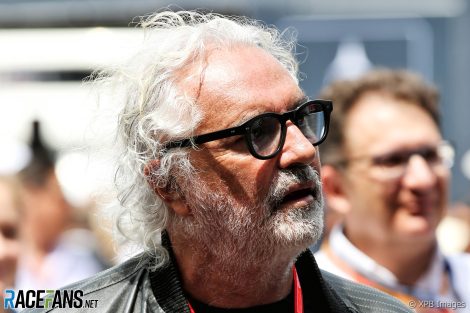
Just as do judges in civilian courts, F1 stewards interpret and judge any matters brought before them on the basis of prevailing laws. These are the technical, sporting and, from this year, financial regulations, with the FIA international sporting code effectively being the constitution – which overrides all other regulations unless specifically stated to the contrary.
It was under ISC Article 14, which demands that “a significant and relevant new element is discovered which was unavailable to the parties seeking the review at the time of the decision concerned”, that Mercedes requested a review of the (unwritten) stewards’ decision that no further action be taken over Verstappen’s move, which took no more than 10 seconds. However, the footage of which was not available at the time; indeed, the overarching question is why it took 48-odd hours for footage to be made available.
Once the footage emerged via F1 broadcasters on social media Mercedes understandably requested a right of review. The last such request, involving Aston Martin’s fuel system after its third-placed car proved unable to deliver the required fuel sample, took around two hours to deny, having entailed a sealed car and various technical arguments and explanations.

That would come later if the review was granted. Thus, paddock folk not unreasonably expected a verdict an hour or so after the hearing commenced at 5pm, that appointment time having been determined a day in advance by the stewards.
Yet, at 8pm local time the media was told the hearing had “resumed after a break” and at 9:30pm that, “the stewards are now considering the matter and will publish their decision tomorrow.” What transpired in the intervening four-and-a-bit hours? For starters, proceedings were interrupted by a sporting directors meeting, the timing of which was, though, known at the time that the right of review timeline was determined.
Then, lateness of the hour and the fact that stewards were spread across three time zones – Europe, Brazil and the USA – were further contributing factors, as was the fact that Tim Mayer, chairman of the stewards and connected from his home in Atlanta, Georgia via the FIA’s ‘home stewarding’ system, was called up at short notice to steward in Qatar. Any wonder five hours elapsed and no verdict?
Advert | Become a RaceFans supporter and
The following morning (allegedly) got off to a delayed start due to time zone differences. Should crucial sporting decisions be delayed due to time zones, or should stewards be prepared to across these? Mayer was a ‘remote’ steward during the Le Mans 24 Hour and previously connected to other championship rounds, so deliberations could surely have continued through the night (or early morning).
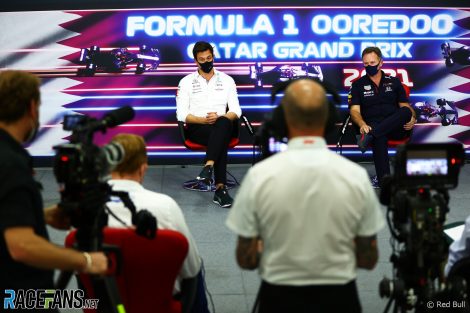
During his Sunday media briefing FIA race director Michael Masi argued that such a system would impact on the timelines for rights of appeal. But most sporting verdicts cannot be appealed, in particular yellow flag incidents and rights of review. Thus, the FIA should consider summary verdicts where no appeals are permitted.
Tellingly, the following [truncated] passage appears in the decision to not grant a review: “Whether or not stewards’ decisions are considered to be right or wrong… it does not seem desirable to be able to review… in‐race discretionary decisions up to two weeks after the fact and the stewards therefore seriously doubt the intent of the Right of Review… is to enable competitors to seek a review of such discretionary decisions that do not follow on from a formal inquiry by the stewards and do not result in a published document.”
Clearly, then, the stewards had no intention of granting a review, begging the question: why did four extremely busy men deliberate for hours over a matter that effectively had no legs? If the Aston Martin fuel tank matter could be dispensed within two hours, this one could surely have been sorted in half that time, i.e. before Mayer needed to attend any other meeting and well before bedtime for the rest of the stewards.

At best, he and the other two drivers could plead extenuating circumstances due to confusion but it seemed bang to rights for him and Valtteri Bottas, who was also penalised, albeit for not respecting a single yellow.
Yet, the first summonses were not issued until almost three hours after the alleged incidents; add in time zone differences and it is little wonder the verdicts dropped 20 hours after the incidents. Race director Michael Masi stated during his post-race media briefing that he personally checked the footage of all drivers – six, at most – who may have ignored yellow flags before referring the matter to the stewards.
That takes time, he said. True enough, but the stewards, who had all the required footage of the incidents – as did we in the media centre and all fans – simply did not need to wait for Masi to refer the incidents to them, as they don’t actually need to. Indeed, as they noted in their right of review decision:
“The stewards do not sit passively during a race and did not do so in [the case of Verstappen’s lap 48 manoeuvre]. By the time the race director asked the stewards for their view and stated that it was going to be ‘Noted’ on the timing screens, they were already looking at the available footage,”
and
“The race director may report any on‐track incident or suspected breach of these Sporting Regulations or the code (an ‘incident’) to the stewards. After review it shall be at the discretion of the stewards to decide whether or not to proceed with an investigation. The stewards may also investigate an incident noted by themselves.” (Emphasis added).
Against that background, did they not notice (and note) the yellow flag incidents; if so, why the three hour delays in issues the documents; if not, what were they up to? Had summonses been issued immediately after the incident with little or no delay the drivers would still have been in the paddock rather than at their hotels. Matters could arguably have been sorted by 9pm – and not required an early start for Mayer.
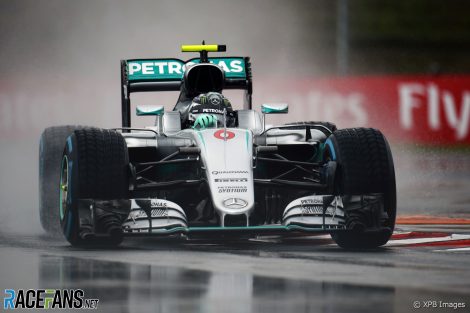
Therein lies the rub: Recent stewarding decisions could have and should have been handed down faster without affecting their veracity and integrity. Perceptions – that word again – linger that with Covid the imperative for speedy decisions has slipped, with remote working compounding the challenges. However, F1 personnel and media adapted, and one wonders whether stewards have done so to the same degrees.
Having attended three stewarding seminars and having met most of the regular stewards I can vouch for their sacrifices, diligence, dedication to the monumental tasks and responsibilities of the duties inherent in refereeing a highly visible global championship – particularly during this most acrimonious of recent seasons – and their incredible love for the sport.
The foregoing is no criticism of their overall abilities or suitability, but the same cannot be said about delays. During the 2018 international stewarding seminar a driver steward with a winning record asked the media panel whether speed or consistency was of the essence when it came to verdicts. I replied that all team bosses demand both at all times – and that stewarding should be no different.
RacingLines
- The year of sprints, ‘the show’ – and rising stock: A political review of the 2021 F1 season
- The problems of perception the FIA must address after the Abu Dhabi row
- Why the budget cap could be F1’s next battleground between Mercedes and Red Bull
- Todt defied expectations as president – now he plans to “disappear” from FIA
- Sir Frank Williams: A personal appreciation of a true racer




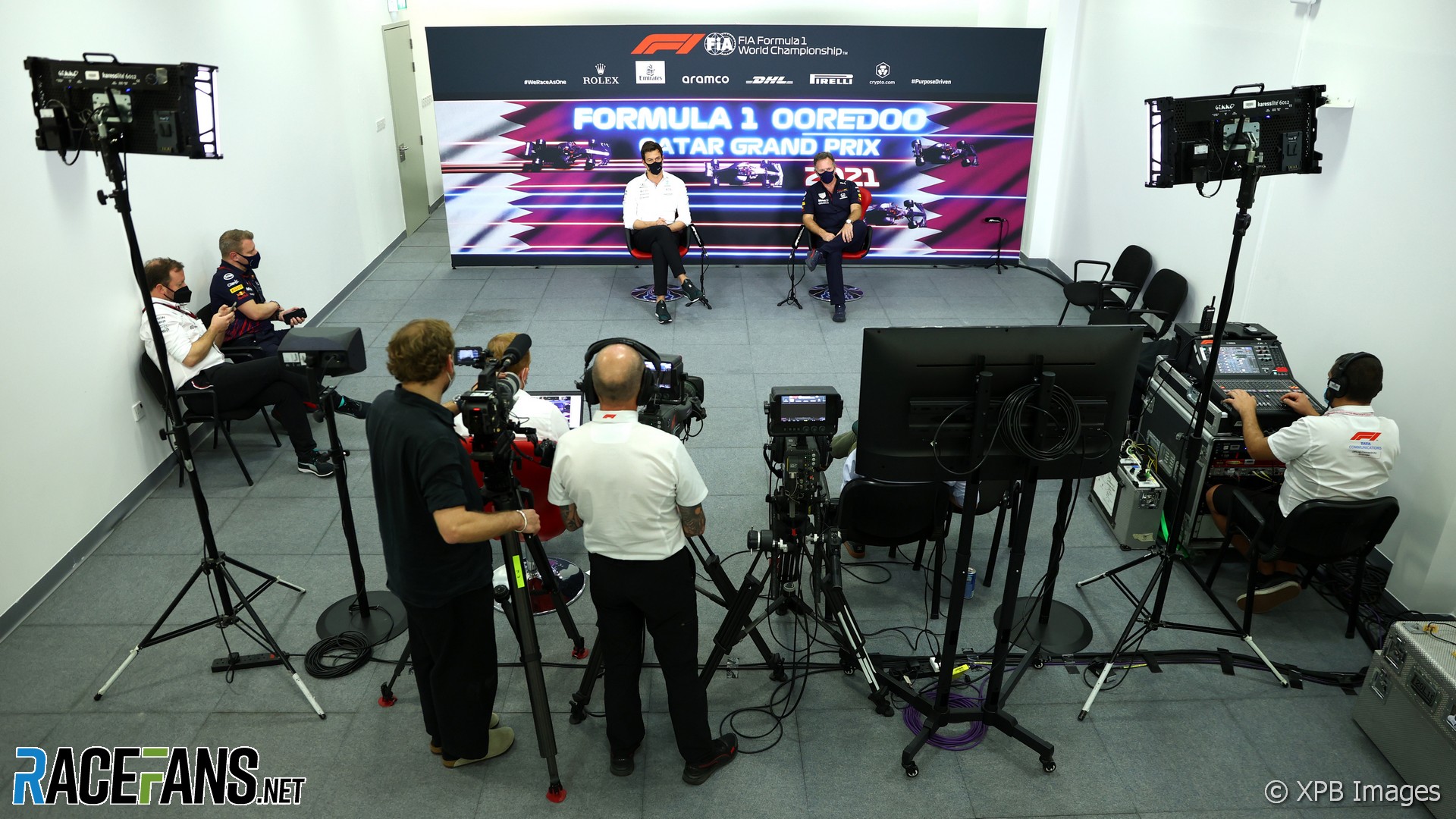
BasCB (@bascb)
24th November 2021, 12:14
Great piece again Dieter!
Alan Dove
24th November 2021, 12:26
Don’t bring the judge Judy into this!
RatSack
24th November 2021, 23:52
We’d probably get more decisive and quick decisions “Sir Excuse Me, Excuse me! I don’t care if there was a rogue marshall, every driver since karting knows that if you see a yellow flag you slow down. Case is dismissed!”
Red Andy (@red-andy)
24th November 2021, 12:28
Great piece. It is also worth noting that Hamilton’s exclusion from qualifying in Brazil was also subject to a lengthy delay for no adequately explained reason.
Granted, there was the parallel issue of Verstappen’s alleged interference with the Mercedes rear wing, but given the way that argument was summarily dismissed in the eventual verdict it does not appear it was seriously entertained for very long. So there was no need to wait for hours to confirm what was a straightforward case of a breach of the Technical Regulations.
Simon
24th November 2021, 17:48
Really?
Ajaxn
25th November 2021, 1:11
Verstappen’s alledged interference?? He apparently tested the rear wing and reported back to Horner that the rear wing was very different from his own. He wasn’t just looking at the rear wing, however brief it may appear.
When you consider the tiny margins 0.2mm, 1/5th of a mm, it not inconcievable that Verstappens ‘testing’ aka his manhandling of that rearwing may well have been a contributing factor to their failure. The fact that this was dismissed by the stewards speaks volumns for them. 0.2 of 1 mm.
That decision could have been a deciding factor in the champiionship, as it is Hamilton’s superhero performance saved the stewards from themselves.
Records were meant to be broken, but don’t tell that to the FIA who seem bent on preserving the Shumacher legacy at least for another season.
Aapje (@aapje)
25th November 2021, 9:50
@Ajaxn
I think that is speaks volumes about you that you disregard the clear evidence in favor of a lie.
cduk_mugello (@cduk_mugello)
24th November 2021, 12:38
F1 has always been about entertainment. We only watch it because in some form, it entertains. But the basis of that must be the racing.
The way we’re moving is a bit too WWE – all storylines and staged press conferences. Nobody really watches WWE for wrestling. I hope in the years to come F1 doesn’t go the same way.
Erzen (@xenn1)
24th November 2021, 12:40
Say what you will about the consistency but i generally found the speed of the stewarding decisions satisfactory (the occasional slip up such as Austria 2019 notwithstanding), especially when complex technical stuff are involved (as the article points out with the Vettel review in Hungary this year), and as such, the whole week between the race in Brazil and FP1 in Qatar was nothing short of farcical.
Time zones and busy schedules aren’t really an issue in this day and age. If you need to ask someone if they’re available at a certain point in time for a work meeting, it’s at the tip of your fingers. If they need to join said meeting from the other side of the globe, the path opens up with the tip of their fingers. If you know that next weekend you’ll be staying in Brazil but will have to digitally attend meetings in the Middle East at Middle Eastern time zones, you plan your day/week accordingly. This was just an organisational mess that the sport has somehow just now decided to be bad at, and it’s left everyone disappointed.
David BR (@david-br)
24th November 2021, 13:08
Yep, they’re clearly just milking controversy. While the racing is actually good, as it is this season, they can get away with it. No, I’m not including Verstappen’s Interlagos blocking (and the later weaving). Neither was an example of good, hard racing. Anyone can defend like that.
Jere (@jerejj)
24th November 2021, 13:09
A great piece. I couldn’t agree more with unnecessarily long delays being unbeneficial.
Witan
24th November 2021, 13:12
Great article. A deeper dive into stewarding – selection, training and monitoring – would be interesting. Who guards the guards is a key question?
The understandable changes in work practices because of Covid have sometimes created a new institutional culture where weak performance is excused, disregarding customer needs is acceptable, safety is used to justify any fault or failure. Is this what is happening to stewarding?
Whatever the reason the sporting code needs refining to make consistency and clarify essential in stewarding decisions. How can Norris in Austria and Verstappen in Brazil have such disparate outcomes? How can a request for a review which specifically meets the requirement for new evidence be rejected?
Dieter Rencken (@dieterrencken)
24th November 2021, 13:27
https://www.racefans.net/2020/02/12/how-the-fia-is-sharpening-up-motor-sport-stewarding/
oweng (@oweng)
24th November 2021, 14:09
There should be fixed slots in the weekend schedule where stewards meet to do the post-session investigations. With fixed time slots for decision publishing. That way everyone would know (drivers, teams and fans) when things are being investigated and when to expect decisions.
DaveW (@dmw)
24th November 2021, 14:43
That’s a really good idea. We already have deadlines based on when the grid and results have to be certified etc. But then we blew through a couple of those deadlines last week. They can break their own deadlines.
JohnH (@johnrkh)
24th November 2021, 14:28
I agree 100% I posted this on the 19th of this month.
Liberty are cheapening F1, the series it’s self is in danger of becoming a sideshow to the staged drama and razzamatazz.
DaveW (@dmw)
24th November 2021, 14:28
Well said. I must even excuse the comment:
“but in the main most civilised countries operate as above.”
Which we jurists in the common law countries must find unkind and unfair.
There is an underlying point to be made that the process has in fact become “adversarial” rather than merely investigatory in its mode of adjudication. But enough was said here.
Jim from US (@jimfromus)
24th November 2021, 15:09
I question the wisdom of having former drivers as stewards. We clearly see the variety of opinions from current drivers over what is acceptable. 20 years from now Max could be a steward one race and Vettel another. If reviewing a yellow flag incident they would potentially arrive at a different decision. The stewards should be people that enforce the rules.
Alan Dove
24th November 2021, 15:42
Part of the problem is you need to understand car dynamics to understand intent and that kind of thing. A lot of the fan base will tall about ‘opening the steering’ or ‘he coulda turned more’ as if cars aren’t these dynamic machines where steering input doesn’t correlated with car trajectory 1:1.
Of course, it does add a layer of complexity to the proceedings because being a driver doesn’t mean you are without bias and also actually competent.
The Dolphins
25th November 2021, 4:58
I disagree that former drivers are necessary to understand vehicle dynamics because every car will behave differently: from one season to another, from one generation/formula of car to another, and especially from one category to another. A former race engineer would have the same conceptual knowledge of a car’s dynamics as a former driver. It is beneficial to have a variety of backgrounds to bring experience to the table, this includes former drivers.
It is my understanding the stewards make the decision as a council (it is not one steward investigating one incident while another investigates another.) As such they first need to convince each other, based on the evidence provided, based on the rules, and precedents set, what the ruling should be before agreeing to it.
Tough job, I certainly don’t envy them. To think they do this as a volunteer gig as well. I am grateful they’re around because as much as we may disagree on their rulings (based on our opinions and biases) we would not have a sport without them.
GT Racer (@gt-racer)
24th November 2021, 16:53
@jimfromus The reason ex-drivers were brought in as stewards was because a regular criticism of the stewarding process previously was that the stewards didn’t understand how the cars behave in certain situations or fully appreciate how drivers need to think/act in certain situations.
Neither the stewards or fans will be able to understand or appreciate how things like dirty air may affect how the cars behave in certain situations. How one car moving in a certain way directly ahead of another affects how the downforce & even braking ability of the following car can be affected & how the following car running into the car ahead may not be as one sided as the video/data may make it appear because of that. Or how simply adding more steering lock in some cases may actually make the situation worse rather than better, Especially if the car in question is on the absolute limit of grip.
Even with all the video/data available even the best steward is going to be missing that bit of extra understanding, That sometimes subtle detail that you can only get from having raced.
anon
24th November 2021, 19:24
@gt-racer is there any indication of what significance and influence the driver stewards have had? The feedback seems rather different, with some indicating that their input was considered useful, but others feeling that the role wasn’t really that beneficial or worth having.
Another question that I’ve got and which I’d be interested to know more about is how the FIA evaluates the potential for a conflict of interest for the driver stewards. We know that some drivers have continued to have roles as “brand ambassadors” for a former team, or received sponsorship from them when they have moved into another series – what consideration is given to screening potential driver stewards for those potential conflicts?
Leroy (@g-funk)
24th November 2021, 17:00
@jimfromus I agree. Maybe it is our North American perspective but I can’t think of another top tier sport where the officials are former professionals from that sport. Sure, many officials played as youths but nearly none played anything higher that college level athletics. Most officials in North American sports leagues are actually lawyers for their full time jobs. Which is probably unsurprising given the similarities between evaluating the law and evaluating a sport’s rulebook. But returning to F1 and the stewards, If the rulebook is so complicated and intricate that only a former professional driver can properly interpret it, it is too complex. I see a lot of times people say that drivers are needed because they can determine if something was purposeful or as a consequence of something else that happened. But most officiating in other leagues do not rely on intent in determining fouls. Intent may be used to determine what level of penalty is issued for the foul, but the foul itself is usually a black and white situation. It seems like F1 does it in reverse order and tries to determine intent and then from there determines if it is a foul. It’s a bizarre way to things from my perspective.
Alianora La Canta (@alianora-la-canta)
24th November 2021, 22:07
@g-funk Three of the four stewards at any given Grand Prix are volunteer specialists – their day job can be anything, provided they show the appropriate level of skill when stewarding. It is only one of the four who is a racing driver past or present (note that any professional driver is eligible provided they’ve done some minimum amount of stewarding study beforehand). The requirement to come to a consensus combines both the analytic and experiential elements of expertise.
This is in contrast to most American sports of my experience, where a single person is expected to make the decision in most situations, rather than four. Clearly it is difficult to find former competitors who are also lawyers, so favouring the analytical element for such sports is quite logical.
Leroy (@g-funk)
24th November 2021, 23:09
@alianora-la-canta I understand that only one of the stewards per weekend is a driver and that the other stewards may come from a variety of backgrounds. It still doesn’t explain why the stewards are often determining the intent of the foul to see if a review or penalty is needed through either telemetry or input from the driver steward rather than first determining if a foul was committed and then determining intent.
Alianora La Canta (@alianora-la-canta)
6th December 2021, 18:36
@g-funk They do that because the F1 regulations themselves require it in many places.
Mark Tucker
24th November 2021, 16:02
100% agree with this. Its all being stage managed for social media/netflix content. Very annoying.
GT Racer (@gt-racer)
24th November 2021, 16:21
One thing i’ve heard from more than 1 person on multiple occasions over the past year is that certain decisions are now been made for the benefit of the show rather than because the right decision was been made from a sporting perspective & that certain long standing procedures, protocols & understandings are been ignored or in some cases over-ruled to get an outcome that could be seen as been better for the show.
bosyber (@bosyber)
24th November 2021, 20:28
If that’s happening @gt-racer, why isn’t the FIA protecting the stewards better from such outward influence, as it seems to be a sure way to make their stewarding subject to the threat of outside courts deciding their process cannot assure just and safe decision making!
Alianora La Canta (@alianora-la-canta)
24th November 2021, 22:08
@bosyber Let’s say I’m not the only person who has recently wondered if the FIA has already decided who it wants to win the title, even though its duty to neutrality means it should not have considered any such decision.
DonSmee (@david-beau)
24th November 2021, 16:39
Dieter is on fire these days, and no broken fuel hose involved!
Simon
24th November 2021, 17:47
Really?
ferrox glideh (@ferrox-glideh)
24th November 2021, 23:00
Yes Simon, really.
NewVerstappenFan (@jureo)
24th November 2021, 17:16
Ha, good article.
I wonder why verdict over racing through double yellow zone took 20 hours.
What is next speeding in the pitlane during quali.. 2 place grid penalty. 20 minutes before. The race.
It is just… Unprofessional.
Like Dieter said. Some new-gen fans might already be ex-gen fans.
Simon
24th November 2021, 17:47
Really?
ferrox glideh (@ferrox-glideh)
24th November 2021, 23:01
Yes Simon, really.
Jim from US (@jimfromus)
24th November 2021, 18:02
The whole thing is curious. Hamilton received double penalties and double points for practice starts in the wrong location. It is possibly an unsafe action which is why he was penalized we were told. But in reality he performed the starts when no one was around so there was no danger of a bad outcome. Yet he was penalized for the action and not the outcome. That is all we want as fans when we see the top 2 cars traveling off track on a curve.
David BR (@david-br)
24th November 2021, 19:15
@jimfromus While Leclerc did the same at Spa and went unpenalized.*
*Consumer advice label: different stewards may produce different outcomes. For best results, leave to marinate for 24 hours in the fridge.
Darryn Smith (@darryn)
24th November 2021, 18:28
What a vacuous and pointless article. I thought they handled it quite quickly. Who pays attention to this kind of thing anyway? .1 percent of the fans. When I showed up to watch the replay Sunday evening it was all sorted.
Jim from US (@jimfromus)
24th November 2021, 19:57
And Maia’s mom decided to leave a post.
Alianora La Canta (@alianora-la-canta)
24th November 2021, 22:09
@darryn Everyone who saw the grid paid attention to at least one of them, given the decision changed said grid and was discussed for a long time pre-race.
KaIIe (@kaiie)
24th November 2021, 19:32
Thanks! Gotta say, one of the best articles about F1 I’ve read this year.
PMccarthy_is_a_legend (@pmccarthy_is_a_legend)
24th November 2021, 21:25
Lol
AJ
24th November 2021, 19:40
Historically, has the stewardship in F1 ever been in this much limelight? Its quite a coincidence isnt it?
bosyber (@bosyber)
24th November 2021, 20:32
Well, it certainly was during 2008 AJ (after which the driver stewards were brought in, instead of a single point-of-consistency/failure who had a good relation with Bernie and Mosley (hence was considered potentially biased against McLaren & Hamilton by many); And while I myself wasn’t watching F1 yet at the time, the Balestre/Senna/Prost episodes were there too.
So, one might well argue that a tense championship between two drivers might well increase the pressure and put a magnifying glass on the stewards’ actions. But, note that after both those episodes, things changed to try and improve impartiality and consistency.
John H (@john-h)
25th November 2021, 7:51
I remember a penalty for Bourdais in 2008 that lifted Massa up the standings that was very contentious.
John H (@john-h)
25th November 2021, 7:57
@bosyber even found the article from 2008, I appear to have commented on it not very happy!
https://www.racefans.net/2008/10/12/bourdais-gets-25s-penalty/
Jim from US (@jimfromus)
24th November 2021, 19:59
Along the lines of we can’t penalize Max for anything the rest of the season, his rear wing flutters intermittently during practice but remains rigid during qualifying and the race. No investigation necessary.
John H (@john-h)
24th November 2021, 21:54
Fantastic piece Dieter, the culture of F1 is shifting to some kind of American fake drama but we must keep our voices heard somehow and prevent this! Loved it when Max said he wasn’t doing DTS anymore, can’t stand the bs in the last couple of series.
Aleš Norský
25th November 2021, 0:23
So, it took the stewards 22½ hours to decide they are not going to review the turn 4 incident at all. If they did review it, I am sure it would have taken just fraction of that time.
Keith Collantine (@keithcollantine)
25th November 2021, 15:04
The article above has been updated with an additional paragraph reflecting further information received since its original publication.